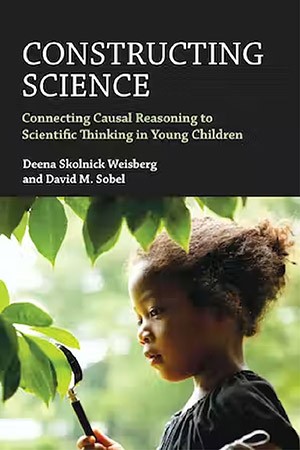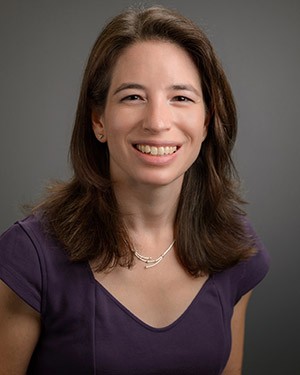Villanova Professor’s New Book Challenges Current Conceptions About Scientific Thinking Development in Children

VILLANOVA, Pa. – Young children have remarkable capacities for causal reasoning, which are part of the foundation of their scientific thinking abilities. In Constructing Science: Connecting Causal Reasoning to Scientific Thinking in Young Children (MIT Press, 2022), co-authors Deena Skolnick Weisberg, PhD, Villanova University, and David M. Sobel, PhD, Brown University, trace the ways young children’s sophisticated causal reasoning abilities combine with other cognitive, metacognitive and social factors to develop into a more mature set of scientific thinking abilities.
Conceptualizing scientific thinking as the suite of skills people use to generate hypotheses, solve problems and explain aspects of the world, Dr. Weisberg and Dr. Sobel argue that understanding this capacity, as it develops in children, can offer insights into becoming a more scientifically literate society.
Causality is the relationship between two events—the consequence and the cause of it—and children learn this as early as infancy. Dropping a spoon from their highchair repeatedly isn't just meant to drive their parents crazy. They are experimenting, becoming exceptional causal learners.
In the book, the authors outline a framework for understanding how children represent and learn causal knowledge, identify key variables that differ between causal reasoning and scientific thinking, and present empirical studies suggesting ways to bridge the gap between the two. The studies focus on two factors: contextualization and metacognitive thinking abilities. Finally, the authors examine children’s explicit understanding of concepts such as science, learning, play and teaching.

Dr. Weisberg is assistant professor, Psychological and Brain Sciences at Villanova University, where she directs the Scientific Thinking and Representation (STAR) Laboratory. She is also the co-director of the Pennsylvania Laboratory for Understanding Science. Dr. Sobel is a professor in the department of Cognitive, Linguistic and Psychological Sciences at Brown University.
Dr. Weisberg’s research interests include scientific thinking and reasoning in children and adults, the development of imaginative cognition, and the roles that the imagination plays in learning. She was recently selected as a 2022 – 2024 Learning Sciences Exchange Fellow by New America and the Jacobs Foundation. Her work has been published in a variety of scholarly journals, including Science and Cognition, and has received funding from the National Science Foundation and the Templeton Foundation.
Dr. Weisberg received her doctorate from Yale University.
About Villanova University’s College of Liberal Arts and Sciences: Since its founding in 1842, Villanova University’s College of Liberal Arts and Sciences has cultivated knowledge, understanding and intellectual courage for a purposeful life in a challenging and changing world. With more than 40 majors across the humanities, social sciences and natural sciences, it is the oldest and largest of Villanova’s colleges, serving more than 4,500 undergraduate and graduate students each year. The College is committed to a teacher-scholar model, offering outstanding undergraduate and graduate research opportunities and a rigorous core curriculum that prepares students to become critical thinkers, strong communicators and ethical leaders with a truly global perspective.
